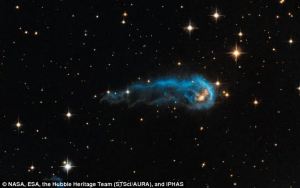Maybe (chemical symbol: M, or possibly My) is a powerful and versatile element used in the production of theories.
Maybe is one of the elements known to the Greeks of antiquity. Early Greek philosophers believed that the sun was Maybe a flaming chariot.
The first deposits of Maybe in the New World were found near the town of Salem, Massachusetts, where town elders employed it regularly to determine when a woman Maybe considered a witch for combustion purposes.
The human body contains trace amounts of Maybe, which are used primarily in the negotiation of private contracts. The use of Maybe was recognized by the U.S. Supreme Court in the landmark 1952 Bobby v. Mom & Dad ruling, which affirmed that the statement “Eat your spinach and you can have dessert.” is an enforceable contract, but the statement “Clean your room and Maybe we’ll go to the toy store.” is not.
Maybe is in the same chemical family as Whatif (chemical symbol: IF), used in the production of hypotheticals, and Ibet (chemical symbol: IB), a common element found in many wild guesses.
For centuries, Maybe was a part of every scientist’s laboratory. Alchemists often stored Maybe in earthenware vessels, with small gaps along the side to allow air in. Modern storage devices are based on the original design of space alien inventor Caractacus Potts, and are still known colloquially as “crack-pots”.
In modern times, Maybe plays a vital role in the production of scientific and economic theories. The use of numbers and facts in these disciplines makes them extremely fragile when proven wrong. By adding a modicum of Maybe, even ludicrous ideas can be perpetuated until long after the author has retired.
One recent growth area for Maybe is in the foreign policy arena, where Maybe is a key component in discussions of weapons of mass destruction (WMDs). Recent examples include:
- Maybe we’ll find WMDs.
- Maybe he won’t use his WMDs.
- Maybe he didn’t use his WMDs.
- Maybe we’ll do something about him using his WMDs.
The majority of the nation’s crack-pots are found at the National Maybe Reserve complex in Washington, D.C.







